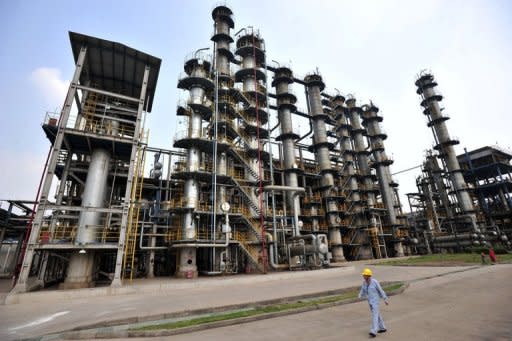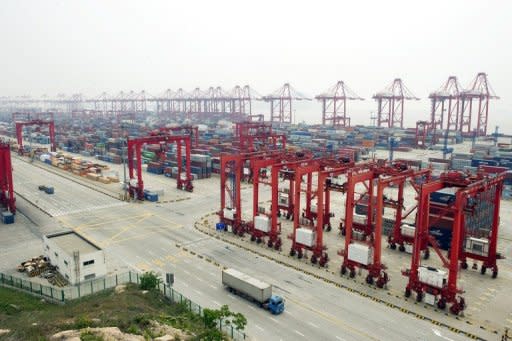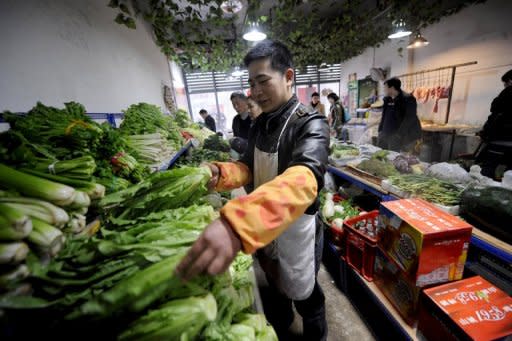China records huge February trade deficit
China swung into a huge trade deficit of $31.48 billion in February, according to the latest customs data, as the West's economic troubles hit the world's second-largest economy. China is normally a net exporter of goods -- it recorded a surplus of $27.28 billion in January -- but total monthly imports rose 39.6 percent year-on-year to $145.96 billion, with exports only going up 18.4 percent to $114.47 billion. Chinese firms' efforts to sell to the country's major trading partners in the West are suffering from the effects of the eurozone debt crisis and weak economic recovery in the United States. The deficit was the largest for at least 12 years, according to Dow Jones Newswires -- the extent of its archived data -- and far in excess of the median forecast of $8.5 billion among 15 economists it had surveyed. Analysts had expected a deficit as imports recovered from temporary disruption after the unusually early Lunar New Year in January, but they had predicted a larger rise in exports and a smaller increase in imports. China's trade figures are politically sensitive, with Beijing and Washington embroiled in a long-running dispute over the value of the yuan, which US politicians say is kept artificially low to unfairly help Chinese exporters. The customs data came after statistics on Friday showed China's inflation rate slowing sharply in February and factory output growth also slipping, which could potentially give authorities more room to take easing measures. "Overall, economic conditions are getting weaker at a fast pace," said Nomura economist Zhiwei Zhang. "The slowdown is happening faster than the government expected." Premier Wen Jiabao, speaking at the opening of the annual session of China's parliament on Monday, forecast economic growth would slow further in 2012 from the blistering pace of previous years. But the government has a difficult tightrope to walk between the perils of slowing growth and the risks of inflation, which it fears as a possible driver of social unrest. Wen warned that consumer prices remained high and the government's aim was to keep the inflation rate within 4.0 percent this year, suggesting policymakers will be cautious about relaxing tight credit restrictions. Beijing has twice lowered banks' reserve requirement ratio in the past three months, effectively increasing the amount of money they can lend, and analysts say they expect further such moves in the coming months, while ruling out aggressive interest rate cuts for fear of fuelling inflation. The customs data showed that the energy-hungry country's crude oil imports reached a record monthly high at 23.64 million tonnes, equivalent to 5.98 million barrels a day. Copper and iron ore imports reached their second-highest monthly volumes on record in February, the former almost doubling year-on-year and the latter up 34 percent. Analysts say that China is nonetheless still likely to run a trade surplus for 2012. The country often records monthly trade deficits early in the year, as manufacturers stock up on imported supplies that will later be processed into goods for export. During the first two months of the year trade volumes with Russia jumped 31.9 percent on year to $13.51 billion and with Brazil they went up 10.6 percent to $11.54 billion, indicating growing trade among the BRICs group of emerging nations. China's biggest trading partner remains the European Union, with $79.8 billion in two-way trade in January and February, up 4.7 percent. Next was the US, at $66.05 billion, up 9.2 percent.




